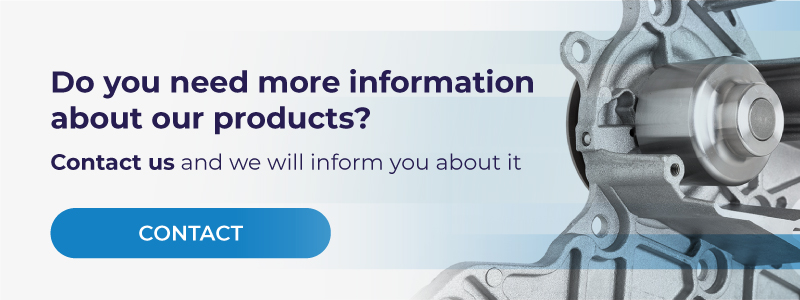Is There a Easy Way to Fix a Timing Belt Thats on Wrong in a Nissan Pathfinder
Timing chain replacement: when it's necessary?
The timing chain is a component of the car engine that synchronises the rotation of the crankshaft and camshaft in the engine's lower and higher portions. This allows the engine's inlet and outflow valves to open and close at precisely predetermined intervals during each round of the engine. It serves as a link between the upper (cylinder head and valves) and bottom parts of the engine (pistons and crankcase). This component resembles a bicycle chain and generates a louder noise than a timing belt. For optimal power and overall engine performance, as well as fuel economy, proper synchronisation between valve timing and cylinder strokes is required.
When does a timing chain get damaged?
Unless there is a specific fault, the timing chain should be replaced between 80,000 and 120,000 miles. Chain problems are frequent in automobiles with increasing mileage. If you're driving an older car or one with a lot of miles on it, keep an eye out for signs that the timing chain is failing. Because the timing chain might break and require replacement, it's critical to be able to spot the symptoms and have it serviced before it completely fails.
Do you need more info about Timing Chains? Click here.
Timing chain replacement: warning signs
Timing belts must be replaced on a regular basis, but timing chains do not. There's no reason to alter the timing chain unless it's damaged, strained , or otherwise affected. If there is a problem with the timing chain, your car will most likely have one or more issues.
The following are signs of a faulty timing chain:
- Starting the vehicle is difficult
- Noise in the timing chain
- Check engine light illuminated
- Engine misfires and sluggishness
- When the engine is idling, it vibrates or shakes
- The engine will not start
There's a chance you'll notice a noise coming from the timing chain cover region. A loose timing chain, which could be caused by a malfunctioning timing chain tensioner, guide, or other faults, is frequently the source of this noise . If you overlook the early warning signs, more significant problems will develop ; therefore, make sure to inspect the timing chain as soon as you notice a noise coming from its mounting place.
More info: Dolz introduces 8 new references to its range of Timing Chain Kits
Rattling noise during start and idle
The rattling or clattering sound produced by the stretched chain may also become annoying. With the hood open, this sound will be audible, and it will change with engine speed. A broken timing chain may hop around on the crank and camshaft gears , generating rattling and knocking noises from the front of the engine, or it may hit the timing chain cover. A broken timing chain will allow the valves to come into contact with the pistons in severe failures on some engine models, resulting in very loud knocking and banging noises, catastrophic engine failure, and damage to the valves and pistons.
Broken plastic timing guide and metal shaving
Small metal parts can break off your timing chain and end up in the oil pan if it's worn out. If your mechanic notices little pieces of metal inside the oil as it is drained or in the filter when you get your oil changed, it could signify your timing chain is starting to fail. However, there are a variety of other issues that might result in metal shavings in the oil. If you discover metal in your oil, contact your manufacturer or service provider as soon as possible for an examination, precise diagnosis, and suitable repair.
Lack of power
Because the valves are not opening and shutting at the proper times, a timing chain that has stretched sufficiently to skip some teeth on the sprocket will not allow the combustion chambers to pull in the necessary quantity of fuel and air mixture. This results in a considerable loss of power and reduces the engine's responsiveness to accelerator pedal input.
Timing related codes
By controlling when the intake and exhaust valves open and close, the variable valve timing system improves fuel economy and engine performance. The ECM adjusts the camshaft(s) through the use of oil control valves, commonly known as VVT Variable Valve Timing control and solenoid valves.
The drivability of your car is greatly impacted by timing-related codes. Increased engine stalling, rough engine idle, decreased fuel economy, and rattling/knocking noises from the engine are the most typical issues. Continuing to drive the car in this situation could result in serious damage to several internal engine components.
The Bottom Line
The timing chain is an essential component of any engine, and your car would be useless without it. If your timing chain breaks while you're driving, your vehicle's engine is likely to suffer catastrophic damage. If you detect any of the danger signals described above, the best way to avoid major engine damage is to have your timing chain replaced by a skilled mechanic. You may save thousands of dollars and considerably extend the life of your engine by being proactive and aware.
At Industrias Dolz we have developed a new range of timing chain kits ; they are much quieter and promote longer transmission life. In addition, they do not require scheduled maintenance. All Dolz kits meet all OE quality standards and include all components required for a professional repair (timing chain, crank sprocket, cam sprocket, tensioner, guides, oil seal, VVT…).
Contact us if you need further information about our timing chain kits or about the timing chain replacement.

mcclemenswoor1999.blogspot.com
Source: https://www.idolz.com/en/2021/06/25/timing-chain-replacement-when-its-necessary/

0 Response to "Is There a Easy Way to Fix a Timing Belt Thats on Wrong in a Nissan Pathfinder"
Post a Comment